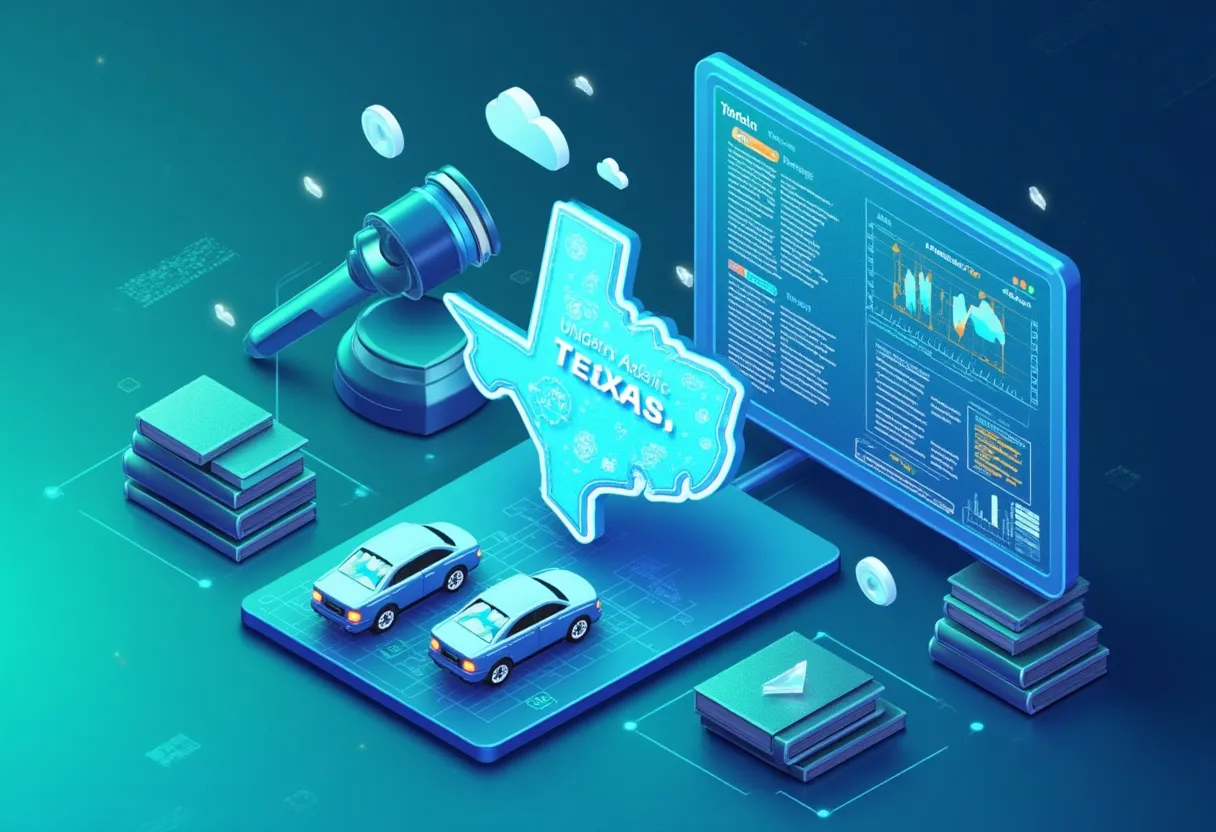The Complete Guide to Auto Insurance in Texas: Market Trends, Compliance & Growth Strategies

The auto insurance landscape in Texas is evolving rapidly, shaped by a myriad of factors including regulatory reforms, technological advancements, and changing consumer expectations. As a key player in the national auto insurance market, Texas presents unique challenges and opportunities for insurers and Managing General Agents (MGAs). Understanding these complexities is essential for maintaining compliance, adapting to current market trends, and implementing effective growth strategies. A brief comparison with California, another major auto insurance market, provides a broader perspective on how geographical and regulatory environments can influence insurance practices.
What Are the Current Market Trends in Texas Auto Insurance?
In Texas, the auto insurance market is characterized by its dynamic nature and competitive environment. The adoption of technology, such as telematics and usage-based insurance models, offers both challenges and benefits to insurers. Consumers increasingly seek customized insurance packages that align with their driving behaviors and lifestyle, prompting companies to integrate advanced data analytics into their offerings. Meanwhile, increasing vehicle repair costs and weather-related claims continue to influence premiums. In comparison, California faces similar trends with a focus on innovation to manage its large and diverse demographic insured population.
- AI‑Powered Underwriting Automation for Texas Auto MGAs
- Preventing Premium Leakage in Texas with Cross‑Channel Data Enrichment
- How Predictive Scoring Algorithms Are Changing Underwriting in Texas Auto MGA Markets
- Streamlining Email Intake & Automated Document Extraction for Texas Underwriters
- Automating FNOL to Accelerate Claims in Texas
- AI‑Driven Fraud Detection for Texas Auto Claims
- Claims Image Recognition Best Practices for Texas Insurers
- End‑to‑End Claims Pack Automation for Faster Settlements in Texas
What Are the Key Compliance Regulations for Auto Insurance in Texas?
The regulatory framework for auto insurance in Texas is designed to protect consumers while ensuring fair market practices. Minimum liability coverage requirements are strictly enforced, requiring vehicle owners to carry insurance that covers bodily injury and property damage. Recent legislative changes in Texas have emphasized transparency in policy terms and increased penalties for non-compliance among insurers. For example, recent adjustments to coverage requirements and claims processing guidelines have necessitated updates to compliance protocols. Insurers failing to adhere to these regulations face significant penalties, including fines and license suspensions.
How Can Insurers Leverage AI in Auto Insurance Underwriting?
Artificial intelligence (AI) is revolutionizing the underwriting process in the Texas auto insurance market by enhancing precision and efficiency. AI-driven underwriting processes analyze vast data sets to identify risk factors and calculate premiums more accurately. This technology improves risk assessment for underwriting, enabling faster decision-making and customized insurance offerings. In Texas, several insurers have successfully implemented AI to streamline underwriting workflows, reducing processing times significantly. This adoption not only reduces errors associated with manual processes but also enhances customer satisfaction by offering quicker and more personalized insurance products.
What Role Does Automation Play in Claims Processing?
Automation stands as a pivotal element in the transformation of claims processing within the Texas auto insurance sector. By streamlining claims handling, automation minimizes manual input, thereby accelerating settlement processes. For customers and insurers alike, this translates into enhanced satisfaction and reduced processing costs. An additional advantage lies in fraud detection; automation tools automatically flag suspicious claims, allowing for quicker identification of fraudulent activities and reducing the economic burden of deceptive claims on insurers.
How Can MGAs Adapt to Changes in the Auto Insurance Landscape?
Managing General Agents (MGAs) in Texas confront evolving challenges and opportunities within the auto insurance domain. They must capitalize on market changes by identifying new growth opportunities, such as niche insurance products tailored to specific customer segments. Leveraging technology to enhance operational efficiency, MGAs are increasingly adopting digital platforms that facilitate better risk assessment and customer management. Forward-thinking growth strategies, like expanding digital sales channels and enhancing customer engagement, are crucial for future success in Texas's competitive insurance market.
What Are the Implications of Evolving Regulations Like SB 1234?
Senate Bill 1234 introduces notable reforms affecting auto insurance regulation in Texas. It underscores transparency in policy disclosures and mandates enhanced data protection measures for insurers. Preparing for such regulatory changes involves proactive strategy development to ensure compliance and mitigate risks. Insurers can implement adaptive strategies such as revising policy terms and updating customer communication protocols to stay ahead of regulatory mandates while maintaining competitive positioning in the market.
What Are the Future Growth Strategies for Texas Auto Insurers?
The future of the Texas auto insurance market hinges on the ability of insurers to innovate by harnessing consumer data for tailored product offerings. Partnerships with technology providers are key to accessing advanced data analytics and AI tools, fostering enriched customer insights. Furthermore, community engagement initiatives can significantly boost brand loyalty, converting customer satisfaction into long-term retention. Emphasizing customer-centric approaches, while aligning with technological advancements, will define the growth trajectory for insurers in Texas.
What Other Resources Exist for Understanding California Auto Insurance?
California parallels Texas in its market prominence but differs in regulatory challenges and consumer behavior. This cluster of blog posts offers valuable insights into the California auto insurance landscape, focusing on regulatory updates and technological innovations.
- AI-Powered Underwriting Automation for California Auto MGAs
- Preventing Premium Leakage in California with Advanced Data Enrichment
- Harnessing AI-Driven Predictive Models for Smarter Risk Selection in California Auto Insurance
- Streamlining Email Intake & Automated Document Extraction for California Underwriters
- Automating FNOL to Accelerate Claims in California
Conclusion: Embracing Innovation for Competitive Advantage
In conclusion, navigating the complexities of the Texas auto insurance market requires a proactive approach to both identifying emerging trends and implementing robust compliance strategies. Leveraging AI and automation not only enhances operational efficiency but also improves customer satisfaction. As regulatory landscapes evolve, continuous adaptation and innovation are paramount for insurers and MGAs seeking long-term success. Ready to drive the future of auto insurance with Inaza's cutting-edge solutions? Contact us today for deeper insights and tailored strategies.





